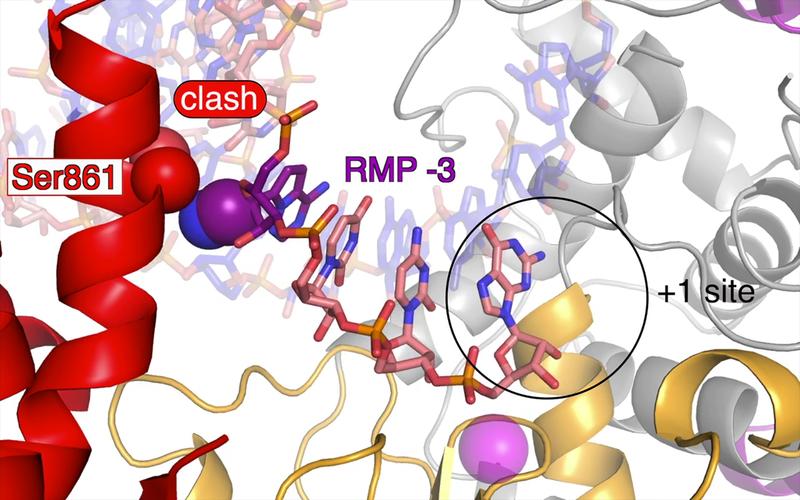
German researchers find reason for remdesivir’s inefficiency
German Researchers have unraveled how remdesivir interferes with the viral RNA polymerase and why it does not block SARS-CoV-2 completely.
We have come to a simple conclusion, said Max Planck Director Patrick Cramer at the MPI for Biophysical Chemistry. Remdesivir does interfere with the polymerase while doing its work, but only after some delay. And the drug does not fully stop the enzyme. This explains why the antiviral nucleoside analogon does not block replication of the novel coronavirus SARS-CoV-1 as efficient as expected.
A ssessing the polymerase-RNA complexes after incopoation of remdesivir into the growing RNA chain, Cramer’s research team discovered that the copying process pauses precisely when three more building blocks have been added. Acording to Cramer, "this pausing is caused by only two atoms in the structure of remdesivir that get hooked at a specific site on the polymerase." However, remdesivir does not fully block RNA production because it can correct the error. This findings opens up new opportunities on improving the substance and its effect. According to the researcher, the vaccinations now underway are essential to bring the pandemic under control. But we also need to develop effective drugs that mitigate Covid-19 disease progression in the event of infection.


 Immunic/Nela Dorner
Immunic/Nela Dorner
